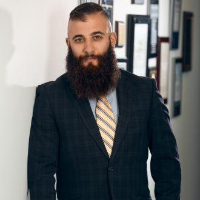Bloomfield Hills DUI-DWI Lawyer, Michigan
Sponsored Law Firm
-
 x
x

Click For More Info:
-
Keches Law Group
122 Dean Street Taunton, MA 02780» view mapSocial Security, Personal Injury, Workers Comp. Protecting Your Rights
Our team of experienced personal injury attorneys has over 130 years of combined experience representing individuals and families injured due to the negligence of others.
800-713-8650
Nicholas Somberg
✓ VERIFIED *Status is reviewed annually. For latest information visit hereDUI-DWI, Criminal
Nicholas Somberg is a practicing lawyer in the state of Michigan handling criminal defense cases.
G. Hans Rentrop
Wills & Probate, Corporate, Estate Planning, DUI-DWI
Status: In Good Standing *Status is reviewed annually. For latest information visit here
Daniel Joseph Larin
Traffic, DUI-DWI, Criminal, Business
Status: In Good Standing *Status is reviewed annually. For latest information visit here
FREE CONSULTATION
CONTACTJerry Cavellier
Child Support, DUI-DWI, Divorce, Family Law
Status: In Good Standing *Status is reviewed annually. For latest information visit here
Sarah E. Blalock
Criminal, DUI-DWI, Felony, Grand Jury Proceedings
Status: In Good Standing *Status is reviewed annually. For latest information visit here
David Rudoi
DUI-DWI, Misdemeanor, Felony, Criminal
Status: In Good Standing *Status is reviewed annually. For latest information visit here
FREE CONSULTATION
CONTACTKathleen Wilson Fink
DUI-DWI, White Collar Crime, RICO Act, Felony, Criminal
Status: In Good Standing *Status is reviewed annually. For latest information visit here Licensed: 37 Years
FREE CONSULTATION
CONTACTJoshua Duane Jones
Misdemeanor, Felony, DUI-DWI, Criminal
Status: In Good Standing *Status is reviewed annually. For latest information visit here Licensed: 14 Years
FREE CONSULTATION
CONTACTMatt Zeigler
Business, Wills & Probate, DUI-DWI, Employment
Status: In Good Standing *Status is reviewed annually. For latest information visit here
Walter J. Piszczatowski
Litigation, DUI-DWI, Constitutional Law, Antitrust, Tax
Status: In Good Standing *Status is reviewed annually. For latest information visit here Licensed: 49 Years
 Sean Flaherty Taunton, MA
Sean Flaherty Taunton, MA AboutKeches Law Group
AboutKeches Law Group Practice AreasExpertise
Practice AreasExpertise
